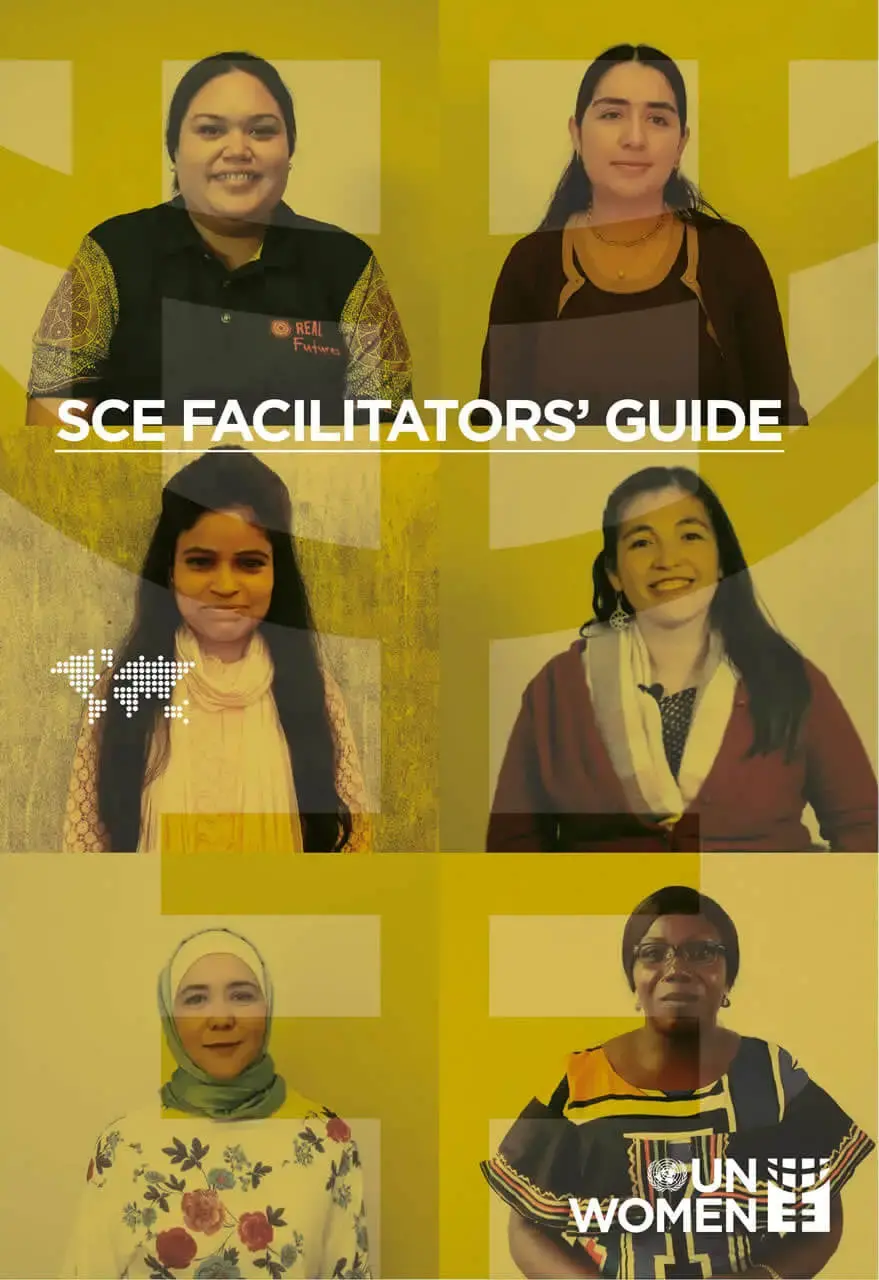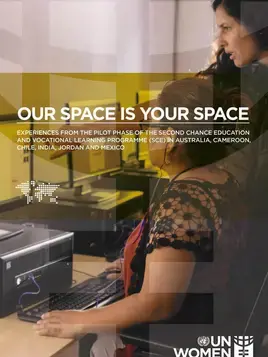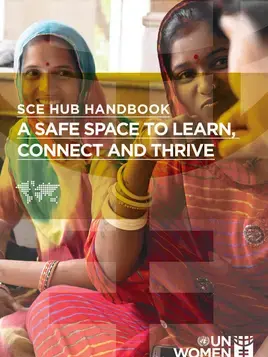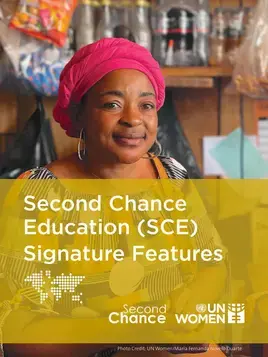
Second Chance Education facilitators’ guide
UN Women’s Second Chance Education (SCE) programme provides women who have been affected by humanitarian crisis, poverty, or harmful social norms with a second chance to access learning and training opportunities and fulfil their personal and economic aspirations. The SCE pilot programme (2018–2023) was implemented in six countries in three contexts:
- humanitarian crisis (Cameroon and Jordan),
- middle income (Chile, India, and Mexico), and
- high income (Australia).
This guide draws on the experiences of the six pilot countries to offer practical guidance on implementing a gender-transformative second chance education programme. It outlines SCE’s six signature features and gives guidance on each. The signature features give SCE its added value as a unique, innovative, and holistic intervention. They arise from a recognition that, for women who are marginalized by crisis, poverty, or harmful social norms, transformational change requires more than the offer of training or education alone.
SCE’s target women have been held back by gender-based barriers and discriminatory practices all their lives without necessarily being aware of it. SCE therefore provides access to practical support and life skills training that enable women to participate fully in whichever learning pathway they choose. Similarly, it recognizes the importance of social learning and personalized support throughout the SCE journey.
For more examples and more in-depth descriptions, see the publication “Our space is your space”.
For guidance on setting up an SCE learning hub, see “SCE hub handbook: A safe space to learn, connect and thrive”.


